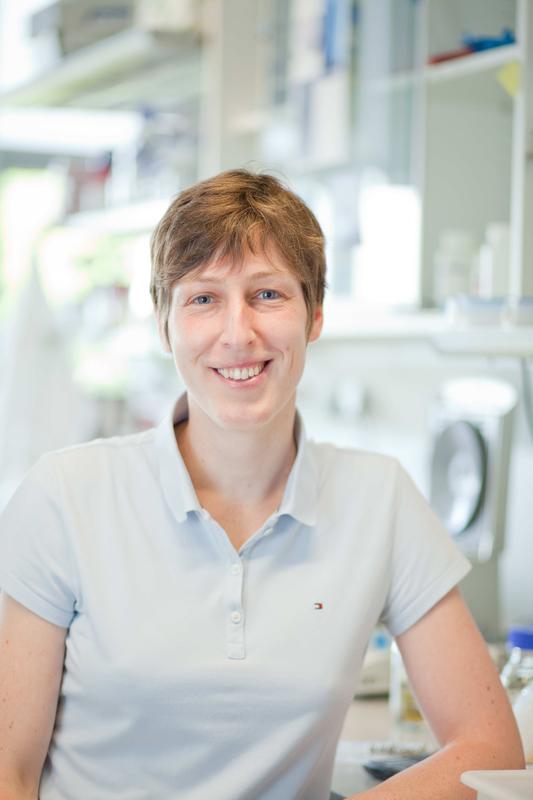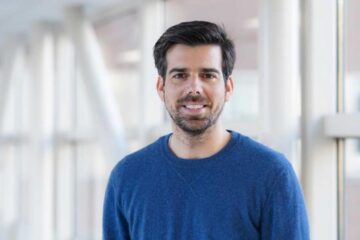Protein design – A construction kit full of opportunities

Dr. Birte Höcker Jörg Abendroth / Max Planck Institute for Developmental Biology
Höcker, a biochemist, studies the evolution of proteins and uses her knowledge to construct new ones. She could already show that the diversity of proteins formed from smaller fragments, which led her to a new scientific approach: Use these parts and recombine them according to a construction kit. Fittingly, her ERC project application is called “Protein Lego”.
“With this project application we follow a completely new approach to protein design”, says Birte Höcker. “We identify stable fragments of well-known protein structures, recombine them, and so we see new complex and functional proteins coming to life.”
The scientist is fascinated by the composition of these essential proteins. “In the first place, the activity of proteins makes life possible”, states Höcker. “And I am particularly interested in all these little details of their structures – how they differ from each other and why they fold the way they do.”
The deeper understanding of protein structures can help to build tailor-made proteins for use in biotechnology, medicine and synthetic biology. Protein design has a broad application range, for example creating new enzymes for manufacturing fine chemicals or degrading toxic material, for new protein based drugs or even as biosensors as tools in basic research.
“Currently we focus primarily on the basics of this technology”, Höcker underlines. Together with her research group she wants to lay the foundation, so that tailor-made proteins for specific applications can be constructed in the near future.
The ERC Grants are the most coveted awards in the European research landscape. Each year the European Research Council supports upcoming scientists of any nationality with Consolidator Grants. The awardees have to carry out excellent research projects and should have finished their doctoral degree at least seven years ago.
About Birte Höcker:
Dr. Birte Höcker finished her doctoral degree in biochemistry in 2003 at the University of Cologne, before she worked as a postdoc at the Duke University Medical Center in the USA. Since 2006, she is an Independent Research Group Leader at the Max Planck Institute for Developmental Biology in Tübingen, Germany.
About us:
The Max Planck Institute for Developmental Biology conducts basic research in the fields of biochemistry, genetics and evolutionary biology. It employs about 360 people and is located at the Max Planck Campus in Tübingen. The Max Planck Institute for Developmental Biology is one of 83 research institutes that the Max Planck Society for the Advancement of Science maintains in Germany.
http://www.mpg.de/9042487/erc-consolidator-grants-2014
http://erc.europa.eu/sites/default/files/press_release/files/press_release_cog20…
Media Contact
All latest news from the category: Awards Funding
Newest articles

Combining robotics and ChatGPT
TUM professor uses ChatGPT for choreographies with flying robots. Prof. Angela Schoellig has proved that large language models can be used safely in robotics. ChatGPT develops choreographies for up to…

How the Immune System Learns from Harmless Particles
Our lungs are bombarded by all manner of different particles every single day. Whilst some are perfectly safe for us, others—known as pathogens—have the potential to make us ill. The…

Biomarkers identified for successful treatment of bone marrow tumours
CAR T cell therapy has proven effective in treating various haematological cancers. However, not all patients respond equally well to treatment. In a recent clinical study, researchers from the University…





















